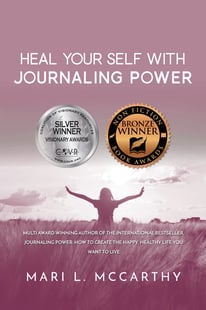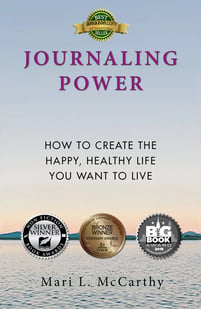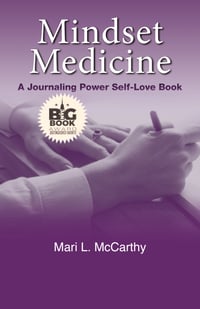Making journaling videos is a therapeutic way of self-expression that involves filming yourself as you discuss your ideas, emotions, and life experiences. Journaling films let you more dynamically capture your feelings and experiences than traditional journaling, which is often done on paper or a digital document.
In recent years, using journaling videos as a therapeutic tool has grown in popularity. People use this writing style to better process and comprehend their emotions and learn more about their mental and emotional health. For those who struggle to express themselves in traditional writing or who want a more engaging manner to reflect on their emotions, journaling videos can be a handy tool.
The Science Behind Journaling
Numerous studies have demonstrated the positive effects of journaling on emotional health. According to research, keeping a notebook on a daily basis can help with immune system performance, the reduction of anxiety and depressive symptoms, and general mental health.
There are several explanations for why keeping a journal is successful. According to one idea, writing about emotional events aids in emotion regulation by lessening the intensity of negative emotions and boosting positive ones. Another hypothesis claims that writing can aid in identifying unfavorable thought and behavior patterns, resulting in increased self-awareness and chances for development and change.
How Journaling Videos Work
Journaling videos enable users to videotape themselves while discussing their ideas, emotions, and experiences. Smartphones, laptops, and webcams are just a few examples of equipment that can be used to record. People generally speak directly to the camera in journaling films, discussing their thoughts and feelings at the moment.
Depending on the needs and interests of the individual, a variety of formats for journaling videos can be produced. Some people favor using guided prompts, using a predetermined list of questions or prompts to direct their journaling. People who are new to journaling or who feel intimidated by the idea of expressing themselves without direction may find this to be especially helpful. Some people prefer to write in a free-form manner in their journals, simply expressing their ideas and emotions as they occur to them.
The Therapeutic Benefits of Journaling Videos
Video journals can be an effective tool for processing emotions and engaging in introspection. Journaling videos offer a special chance to understand your thoughts and feelings by visually and audibly capturing your emotions and experiences.
One of the main advantages of journaling videos is that they can support people in real-time emotional processing. By giving oneself a platform for self-expression, talking about one's emotions and experiences might help people better understand their feelings and encourage emotional regulation.
Compared to more conventional journaling techniques, using video as a journaling tool can also have several benefits. Video, for instance, can record nonverbal signs like body language and facial expressions, which can add to our understanding of how someone is feeling. Video can elicit a more visceral and emotional response than conventional journaling methods, which can help people connect with their feelings on a deeper level.
Various journaling videos can also have particular therapeutic advantages. For those who are new to journaling or who struggle with self-expression, guided journaling videos, for instance, can offer structure and encouragement. While allowing people to record their thoughts and feelings as they occur to them, freestyle journaling videos can be a more spontaneous and genuine form of self-expression.
In addition to these advantages, journaling videos can assist people in better understanding their emotional patterns and triggers, recognizing harmful thought habits, and creating coping mechanisms for challenging emotions. People can get a fresh perspective on their emotional health and actively participate in their mental health by including videos in their journaling practice.
Types of Journaling Videos
Journaling videos come in many different forms, each with its unique benefits for emotional processing. Here are some of the most common types of journaling videos:
Guided prompt videos: The journaling process is guided by the prompts or questions in these videos. The questions may be intended to investigate certain feelings, events, or ideas. Videos with guided prompts might be beneficial for people who have trouble recognizing and expressing their feelings on their own.
Freestyle videos: Individuals can express themselves freely and without following any pre-established themes or prompts in freestyle videos. People who prefer to explore their feelings and experiences without any restrictions may find these videos to be helpful.
Reflection videos: Reflection videos can be used to look back on previous journaling sessions and consider the learnings. They can also be utilized to think back on particular instances or occasions that brought on strong feelings. Reflection videos can aid people in finding patterns and understanding their emotional experiences better.
Artistic expression videos: Journaling and artistic expressions like painting or sketching are combined in artistic expression videos. These videos can be a potent tool for exploring feelings that might be hard to put into words. Additionally, they may induce relaxation and reduce stress.
Tips for Incorporating Journaling Videos into Your Routine
- Set aside dedicated time: Plan a specific time each day or week to practice your journaling through video. By doing so, you can create a reliable pattern and incorporate writing into your self-care regimen regularly.
- Create a comfortable environment: Pick a place that is calm and relaxing so that you can concentrate on your thoughts and feelings without interruptions. Consider designating a certain area, such as a calm area of your home or a comfortable chair, for your journaling videos.
- Experiment with different types of videos: Test out various journaling video formats to determine which suits you the best. You might discover that you enjoy free-form journaling, guided prompts, or a mix of both.
- Use video compression technology: Use video compression technology to free up storage while making sure your videos are accessible. You may then store your journaling films on your hard drive or in the cloud after they have been compressed without losing quality. Learning how to compress a video is easy so you do not need to worry.
- Focus on the process, not the product: Keep in mind that journaling videos are not about producing a polished finished product; rather, they are about the process of self-reflection and emotional processing. Focus on expressing yourself in a way that feels genuine to your experience rather than worrying about being perfect or polished.
Conclusion
Video journals can be an effective tool for processing emotions and engaging in introspection. Journaling videos offer a special chance to understand your thoughts and feelings by visually and audibly capturing your emotions and experiences.
We recommend giving journaling videos a try if you're searching for a fresh approach to improve your emotional health and acquire an understanding of your thoughts and feelings. Try out several video formats, schedule time specifically for your practice, and concentrate on the process of self-reflection rather than the result. Why not attempt it then? Your body and mind will appreciate it.
 Author bio: Ronie Salazar is from VEED. He is a passionate content marketer with a wealth of knowledge in the online space. His curiosity and enthusiasm led to the development of a constantly expanding portfolio that includes anything from video editing services to publishing his original creations on top-notch websites.
Author bio: Ronie Salazar is from VEED. He is a passionate content marketer with a wealth of knowledge in the online space. His curiosity and enthusiasm led to the development of a constantly expanding portfolio that includes anything from video editing services to publishing his original creations on top-notch websites.
Journaling Power Revolution Series





Leave Comment